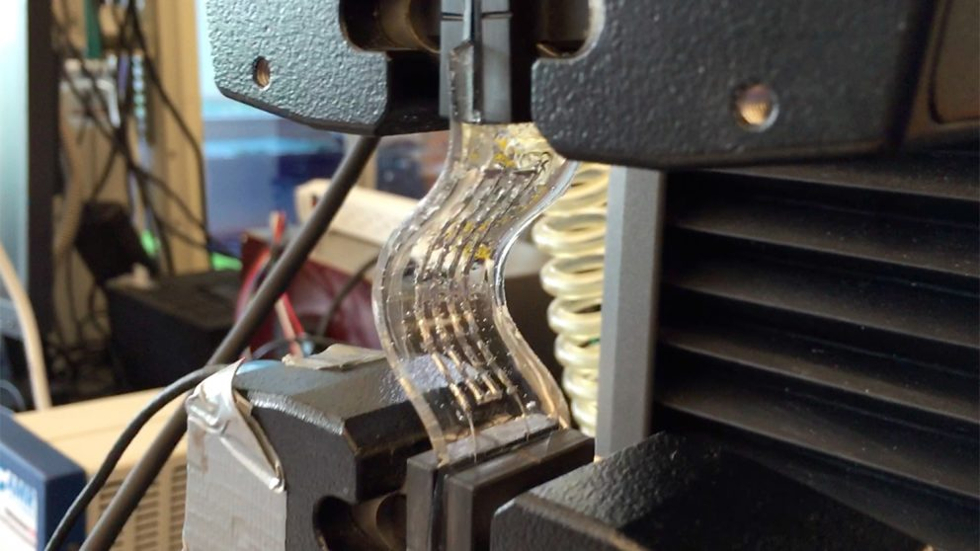Proof-of-concept points to flexible wearables
Engineers have designed a flexible thermoelectric energy harvester that could rival the effectiveness of existing wearable electronic devices that use body heat as an energy source.

In the proof-of-concept study from North Carolina State University (NC State), researchers acknowledge that the performance and efficiency of flexible devices is inferior to rigid devices, which are used to monitor a variety of health and environmental measures.
"We wanted to design a flexible thermoelectric harvester that does not compromise on the material quality of rigid devices yet provides similar or better efficiency," said Mehmet Ozturk, a professor of electrical and computer engineering at NC State and corresponding author of a paper describing the work. "Using rigid devices is not the best option when you consider a number of different factors." These could include contact resistance, plus the ergonomic and comfort considerations to the device wearer.
Ozturk said that he and colleagues Michael Dickey and Daryoosh Vashaee wanted to utilise the best thermoelectric materials used in rigid devices in a flexible package, so that manufacturers wouldn't need to develop new materials when creating flexible devices.
Register now to continue reading
Thanks for visiting The Engineer. You’ve now reached your monthly limit of news stories. Register for free to unlock unlimited access to all of our news coverage, as well as premium content including opinion, in-depth features and special reports.
Benefits of registering
-
In-depth insights and coverage of key emerging trends
-
Unrestricted access to special reports throughout the year
-
Daily technology news delivered straight to your inbox










UK Enters ‘Golden Age of Nuclear’
Anybody know why it takes from 2025 to mid 2030's to build a factory-made SMR, by RR? Ten years... has there been no demonstrator either? Do RR...